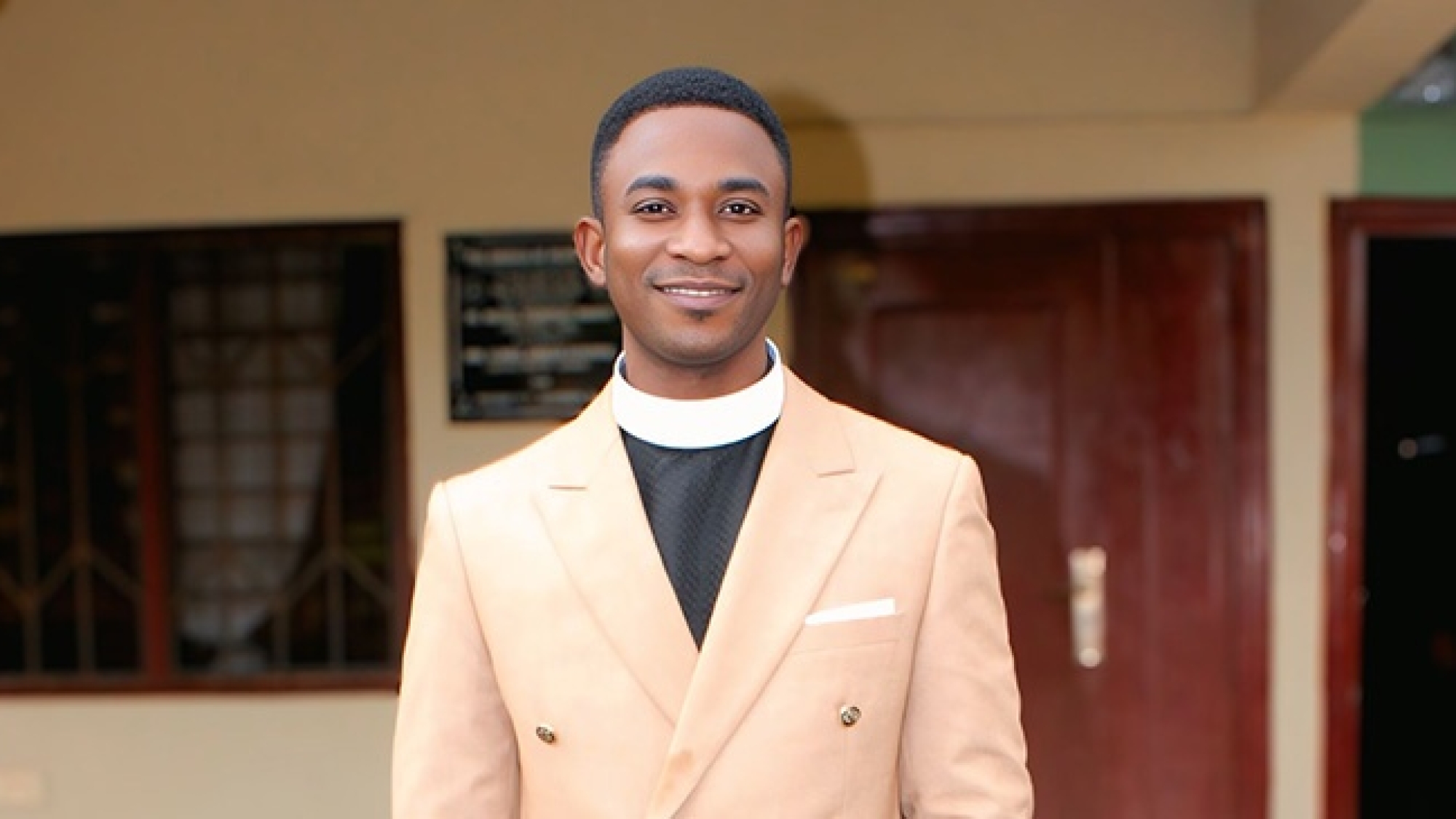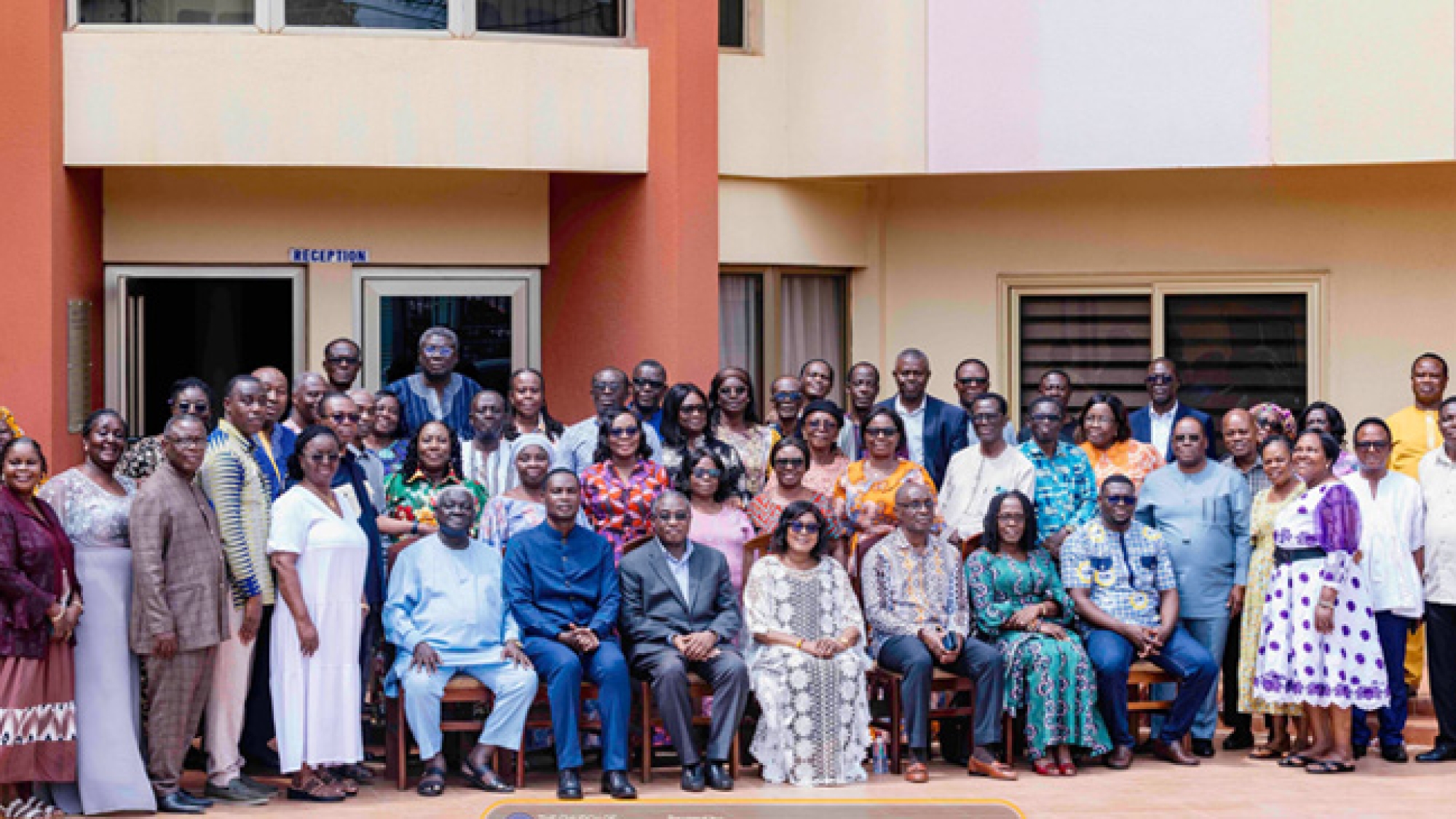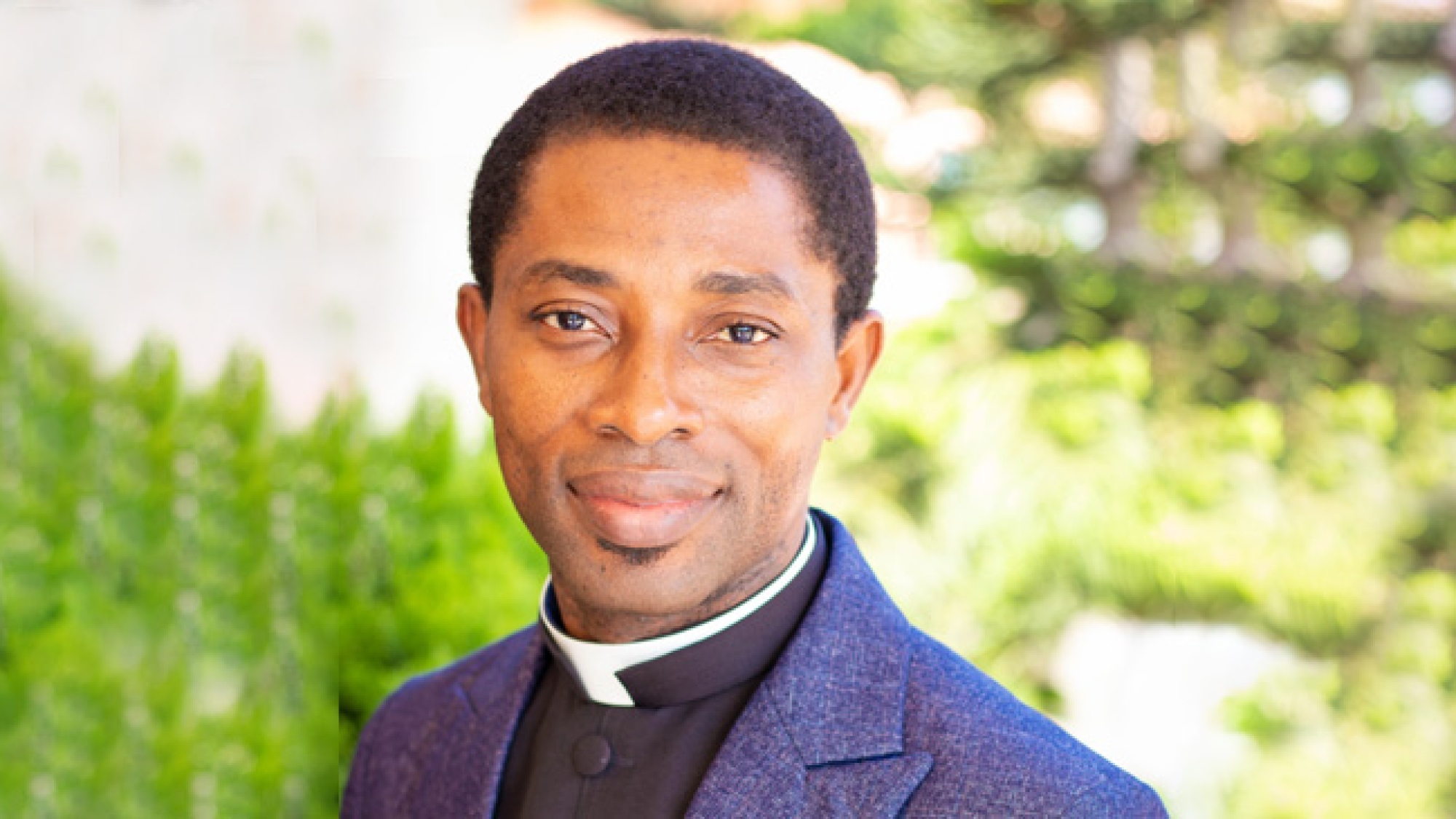INTRODUCTION
The Church of Pentecost, a leading Pentecostal denomination in Ghana and beyond, with over 4 million membership worldwide, continues to seek innovative ways to engage the rapidly evolving demographic landscape of urban centres. Cities like Accra, Kumasi, and Takoradi have increasingly become melting pots of diverse cultures, languages, and nationalities. This diversity presents both a challenge and an opportunity for the church, particularly in terms of effective outreach and integration of expatriate communities into its fold.
In recognition of this urgent need, the Home and Urban Missions, in collaboration with the Youth Ministry, Chaplaincy Ministry, and the Ministry to Celebrities, has organised the maiden Home Missions Conference scheduled for July 10-12, 2025, at the Pentecost Convention Centre, Gomoa Fetteh. The conference aims to gather a diverse representation of church leaders and key stakeholders to deliberate on strategies for engaging expatriate populations. It seeks to train participants in cross-cultural communication, foster inter-ministerial collaboration, and inspire a renewed commitment to mission work in alignment with the church’s Vision 2028.
Central to the theological underpinnings of this conference is the statement by Apostle Dr Brigadier General Benjamin Godson Kumi Wood, the Director General for the Religious Affairs of the Ghana Armed Forces, who, in leading a prayer meeting on revival, declared that revival means “when God comes to town.” This phrase, though simple, encapsulates profound theological truths that have significant implications for how the church perceives itself and its mission. It draws its roots from the events recorded in Acts 2:1-4, where God’s arrival in the person of the Holy Spirit transformed a local assembly of believers into a vibrant, multicultural, and missional community. This paper seeks to explore the implications of this paradigm and how it can serve as a model for PIWCs and other urban churches to become truly multicultural, multiracial, and multinational in character and mission.
UNDERSTANDING REVIVAL: “WHEN GOD COMES TO TOWN”
Revival has often been perceived as a series of emotional meetings characterized by heightened spiritual fervour and enthusiastic gatherings. However, Apostle Wood’s depiction reframes revival not merely as a series of activities but as the tangible manifestation of God’s presence among His people. He likens it to the arrival of the President of Ghana at a public gathering, where his coming is preceded by a grand entourage, security detail, and a palpable atmosphere of anticipation. In such a scenario, the entire environment is altered by the presence of the dignitary. In a similar manner, when God comes to town, as in Acts 2, His presence is not silent or passive but accompanied by visible and audible signs that transform individuals and communities.
The Old Testament provides several precedents for this concept. For instance, in Exodus 40:34-38, when Moses completed the tabernacle, the glory of the Lord filled the structure, making it impossible for Moses to enter. Likewise, at the dedication of Solomon’s temple, fire came down from heaven, and the glory of the Lord filled the temple, leading the people to bow in worship and reverence (2 Chr. 7:1-3). These manifestations were both an assurance of divine approval and a signal that God had indeed “come to town.”
Yet, as significant as these Old Testament events were, they all pointed forward to a greater visitation in Acts 2. The coming of the Holy Spirit during Pentecost marked a shift from God dwelling in physical structures to dwelling within His people. Acts 2:2 describes how a sound like a mighty rushing wind filled the whole house, and divided tongues as of fire rested upon each believer. These phenomena signified God’s royal entry, similar to the entourage preceding a head of state. Unlike previous visitations confined to sacred spaces like temples or tabernacles, Pentecost signalled that God’s presence would now dwell permanently within believers, transforming them into living temples (1 Cor. 3:16).
FROM LOCAL CHURCH TO CITY CHURCH: THE ACTS 2 TRANSFORMATION
Before the day of Pentecost, the followers of Jesus were essentially a localized community confined mostly to Jerusalem. The group comprised primarily Galileans who spoke the same language, shared common cultural practices, and worshiped privately in the upper room. They were seen largely as a sect within Judaism, maintaining a close-knit fellowship but limited in their broader societal impact.
However, the arrival of the Holy Spirit radically altered this scenario. Acts 2:5-6 recounts that devout Jews from every nation under heaven were dwelling in Jerusalem, and when they heard the sound, they gathered in curiosity. What they witnessed was astonishing. Each one heard the disciples speaking in his own native language. The Scripture meticulously lists the diverse nations represented, including Parthians, Medes, Elamites, Mesopotamians, Judeans, Cappadocians, and many others from regions spanning from modern-day Iran and Iraq through Turkey, North Africa, and parts of Europe.
This event signified a divine declaration that the gospel was not the exclusive heritage of one culture or ethnicity. It was a global message intended for every tribe, tongue, and nation. What began as a local gathering was instantly transformed into a “city church”—a body capable of engaging the multicultural and multinational reality of urban life. The shift was not merely linguistic but cultural and theological. The believers moved from being a sectarian group to becoming a universal movement with a global mission.
Peter’s subsequent sermon was deeply contextual, using references familiar to his audience, such as the prophecy of Joel, to explain the outpouring of the Holy Spirit (Acts 2:16-21). The result was dramatic: about three thousand souls were added to their number that day (Acts 2:41). The church, which started as a local entity, had been thrust into the public space, engaging the city’s diverse populace.
MISSIOLOGICAL LESSONS FOR PIWCS AND CITY CHURCHES
The narrative of Acts 2 provides essential lessons for modern urban churches, particularly the PIWCs of The Church of Pentecost, who attended the Home Missions Conference and are seeking to engage expatriate communities effectively.
Firstly, the miracle of speaking in tongues on Pentecost was not merely a private, ecstatic experience but a deliberate divine strategy for transcending linguistic barriers. It demonstrated God’s intent to communicate His message in ways people could understand, regardless of their cultural or linguistic background. This serves as a profound lesson for PIWCs that engaging diverse populations requires intentional linguistic inclusivity. Churches must identify and train multilingual members to serve as bridges to various cultural groups. Services and church programmes should consider integrating multiple languages to reflect the international character of urban centres. Additionally, producing evangelistic materials and discipleship resources in key languages spoken by expatriate communities will significantly enhance outreach efforts.
Secondly, cultural sensitivity and contextualization are non-negotiable in multicultural ministry. Peter’s sermon provides a template for this. Rather than delivering a generic message, he connected the Pentecostal experience to Joel’s prophecy (cf. Joel 2:28), grounding it in his audience’s cultural and religious understanding. PIWCs must study the cultural values, worldviews, and social norms of expatriate groups to avoid practices that might be unintentionally alienating. Worship styles, music, and even preaching approaches may need to be adapted to resonate with diverse audiences.
Thirdly, leadership diversity is crucial for sustaining multicultural ministry. Acts 6 records a situation where tensions arose between Hebraic and Hellenistic Jews concerning the distribution of resources. The apostles resolved this by appointing leaders from diverse backgrounds, ensuring fair representation and cultural sensitivity in decision-making processes. Similarly, PIWCs should be deliberate about including expatriate believers in leadership roles, not merely as participants but as active shapers of church life. Such inclusion fosters trust, ownership, and a sense of belonging among expatriate members.
Moreover, the early church did not confine itself to private gatherings. Acts 2:46 indicates that they continued meeting both in the temple courts and from house to house, thereby maintaining visibility and engagement within the broader society. PIWCs must therefore envision themselves not merely as religious gatherings but as integral parts of the urban ecosystem. Engaging civic institutions, embassies, international corporations, and NGOs can open doors for holistic ministry, addressing social, legal, and practical needs of expatriates, such as language classes, legal aid, and cultural orientation.
REVIVAL AS CITY IMPACT
A critical aspect of revival as witnessed in Acts 2 is its societal impact. The outpouring of the Holy Spirit was not an end in itself. It led to tangible outcomes: numerical growth, communal sharing, and societal goodwill. Acts 2:44-47 describes how believers shared their possessions, met daily in the temple, and enjoyed the favour of all the people. Revival produced not only spiritual renewal but also social transformation.
When God comes to town, He does not merely change individuals; He changes cities. Crime rates decline, social injustices are addressed, and communities experience peace and healing. For PIWCs and city churches, revival must move beyond internal spiritual experiences to external societal engagement. Churches must become agents of change in their cities, bringing hope, justice, and reconciliation to diverse urban populations.
THEOLOGICAL VISION FOR THE MULTICULTURAL CHURCH
Ultimately, the church’s calling is to be a prophetic foretaste of God’s ultimate plan for humanity—a plan beautifully depicted in Revelation 7:9, where John envisions a great multitude from every nation, tribe, people, and language standing before God’s throne. The multicultural nature of the church is not merely a pragmatic response to globalization, but a theological imperative rooted in God’s vision for His kingdom.
A multicultural church demonstrates the universality of the gospel, testifying that salvation in Christ transcends ethnic and cultural boundaries. It reflects the rich embroidery of God’s image as expressed in the diversity of human cultures. Furthermore, it testifies to the power of the cross to reconcile not only humanity with God but also humans with each other, breaking down walls of division, as articulated in Ephesians 2:14-16.
PRACTICAL STRATEGIES FOR PIWCS
For PIWCs to embody this vision, they must commit to intentional, long-term strategies. Language ministries can play a crucial role by providing translation and interpretation during services, enabling expatriates to fully participate in worship and teaching. Cultural festivals that celebrate music, dance, food, and art from various nations can serve as effective platforms for building bridges and fostering understanding.
Community engagement is equally vital. PIWCs should seek to establish partnerships with embassies, NGOs, and international corporations to develop programmes tailored to the needs of expatriates. Social services such as legal aid, cultural orientation sessions, and language classes can significantly ease the transition for expatriates and create open doors for gospel engagement.
In the digital age, PIWCs must also leverage technology to extend their reach. Creating multilingual digital content and utilizing social media platforms can enable the church to connect with expatriates even before they arrive in Ghana or to maintain relationships with those who move elsewhere.
CONCLUSION
Revival indeed means “when God comes to town.” The events of Acts 2 provide an ageless model for how a local church can be transformed into a dynamic, multicultural city church. The coming of the Holy Spirit not only birthed the church but equipped it for a global mission that transcends linguistic, cultural, and national barriers. The Home Missions Conference stands at a pivotal moment in history poised to redefine urban ministry in Ghana and beyond.
By embracing the paradigm of Acts 2, PIWCs and other city churches can become vibrant centres of multicultural worship, fellowship, and mission. Such churches will not merely reflect the diversity of their cities but will serve as prophetic signs of the kingdom of God, where every nation, tribe, people, and language stand united before the throne of grace.
REFERENCES
- The Holy Bible (NKJV, ESV)
- Bosch, D. J. (1991). Transforming Mission. Orbis Books.
- Walls, A. F. (2002). The Cross-Cultural Process in Christian History. Orbis Books.
- Hiebert, P. (1985). Anthropological Insights for Missionaries. Baker Academic.
- Ott, C., Strauss, S. J., & Tennent, T. C. (2010). Encountering Theology of Mission. Baker Academic.
Written by Pastor Emmanuel Foster Asamoah (NEC Member, HUM, Abasraba District, Winneba)














